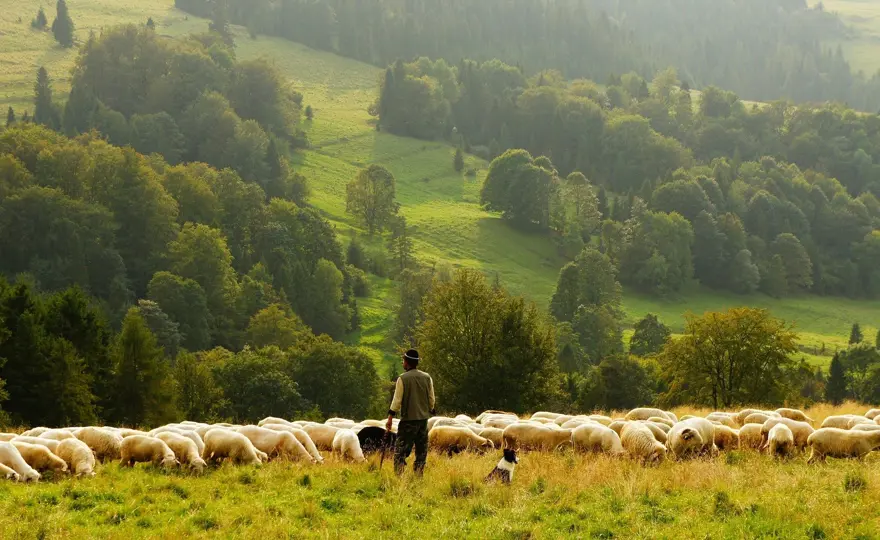ClientEarth Communications
20th October 2021


Access to food is fundamental for our survival. Producing enough food to feed the world is therefore a global task of monumental proportions. That’s why for years, the EU has dished out large subsidies to ensure we have enough food on our plates. These financial aids have helped Europe become one of the top ranking regions in the world when it comes to food security. But these funds are now supporting outdated food systems, ones that are no longer adapted to help protect the EU against present and future threats to its ability to grow and produce food.
To help secure food in the EU not just today, but also in the future, we need it to be grown, produced and consumed in a fair, healthy and environmentally-friendly way. This will make our food systems more resilient, which is ultimately better for the bloc’s economy, environment and its people’s health.
The way we farm now may prevent us reaping harvests in the future.
Current industrial agricultural practices encroach on and degrade habitats and endanger wildlife. The sector uses huge amounts of natural resources. Seasonally, agriculture consumes more than 50% of the water used in Europe, for example. And one of the main problems is that our current food systems take up huge swathes of land. In 2017, cropland and grassland used for livestock made up 39% of Europe’s land cover. That leaves very little space for wilderness, the kind of low-intervention ecosystem that helps keep biodiversity high and our world stable.
Bees and other pollinators for example, are drastically declining in many parts of the world largely due to intensive farming practices, climate change, pesticides use, biodiversity loss and pollution. A decrease in pollinators and other species poses a serious threat to the EU’s ability to grow and produce food, while also fuelling the biodiversity crisis, which puts the EU’s food security at further risk.
Globally, the farming sector also accounts for nearly a third of greenhouse gas emissions, contributing to a changing climate that actually poses an existential threat to the industry itself.
Many farmers and producers are already struggling to cope with rising temperatures, drought and increasingly unstable weather caused by climate change. Extreme flooding in western Germany, Belgium and the Netherlands caused by record rainfall this summer lead to harvest delays. This was preceded by frosts in spring which damaged crops such as sugar beet and fruit trees, as well as devastating vineyards in France and elsewhere.
Changes to the environment and our climate make it increasingly hard to produce enough food for the EU and the world, with low-income nations typically feeling the hardest blow. In some cases, social and political unrest follows. And the fact that the industry is contributing to its own potential downfall means that the system is flawed.
The EU’s agriculture funding also currently exacerbates income inequality within agriculture, with little funding supporting climate-friendly and biodiverse farming. Deep systemic change of our policies and practices are needed to address these challenges if the EU is to ensure food security in the future – business as usual is no longer a viable option.
One immediate way to tackle these issues is through the EU’s new Farm to Fork strategy.
The Farm to Fork strategy is part of the European Green Deal, a core EU initiative which aims to build our resilience to future climate threats. The Farm to Fork strategy is the EU’s blueprint for sustainable food and farming as it aims to make sure that growing and producing food goes hand-in-hand with protecting nature and health. The strategy is particularly important because it has the potential to fill some of the major environmental gaps that the new Common Agriculture Policy – the EU’s main farming policy – has.
However, the Farm to Fork strategy is currently just a series of aspirational commitments and targets. To unlock its true potential of building the foundations of resilient, healthy and sustainable food systems, its targets and objectives must be made into law. This would enable national governments to be held to account if they fail to comply with these legally binding obligations under the strategy.
The Farm to Fork strategy has recently come under attack by some industrial agri-food lobbies, hoping to discredit, delay and weaken it. Much of the debate has focused around the targets laid down in the Strategy. The targets include reducing the use of pesticides, the amount of fertilisers and animal antibiotics. Although these targets are not the silver bullet, they are a vital element of the Farm to Fork strategy as they set the course for the transition towards sustainable food systems and will ensure that progress for getting there can be measured along the way.
The European Parliament has recognised the potential strength the Farm to Fork strategy has in helping the EU build more resilient food systems by putting forward its own initiative report (INI-report). The report calls on the European Commission to endorse the objectives of the Strategy to enable the EU to transition to sustainable food systems. Together with our partners, we’ve put forward 10 priorities that we believe are key to ensure the Farm to Fork strategy can help transform the EU’s food systems. Based on these, the European Parliament has voted to make sure that its report:
Having approved this report, the European Parliament has taken the first step towards enabling the European Commission to take the necessary action to strengthen the Farm to Fork strategy so it can truly transform our food systems into ones that secure food for the EU – in a fair, healthy and environmentally-friendly way.